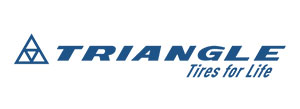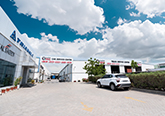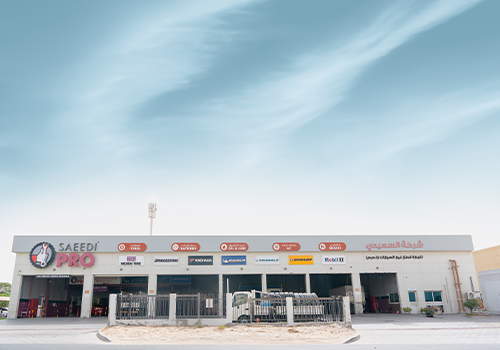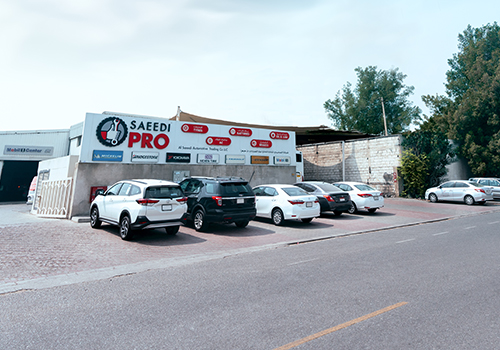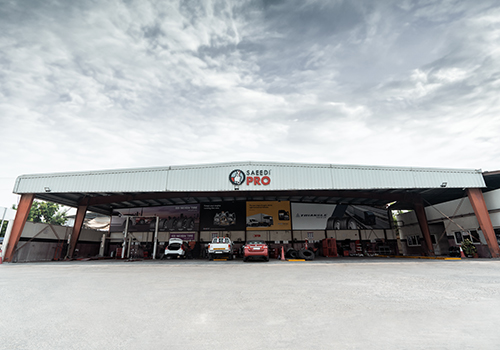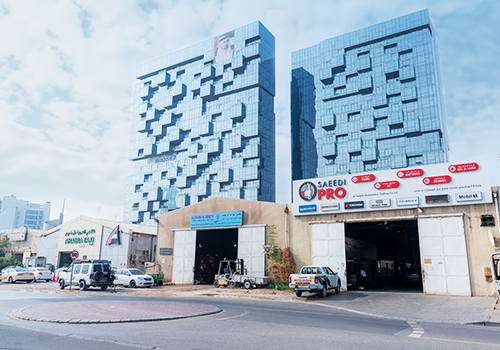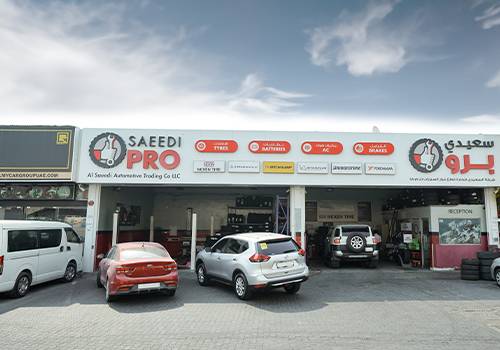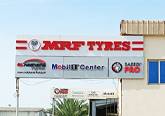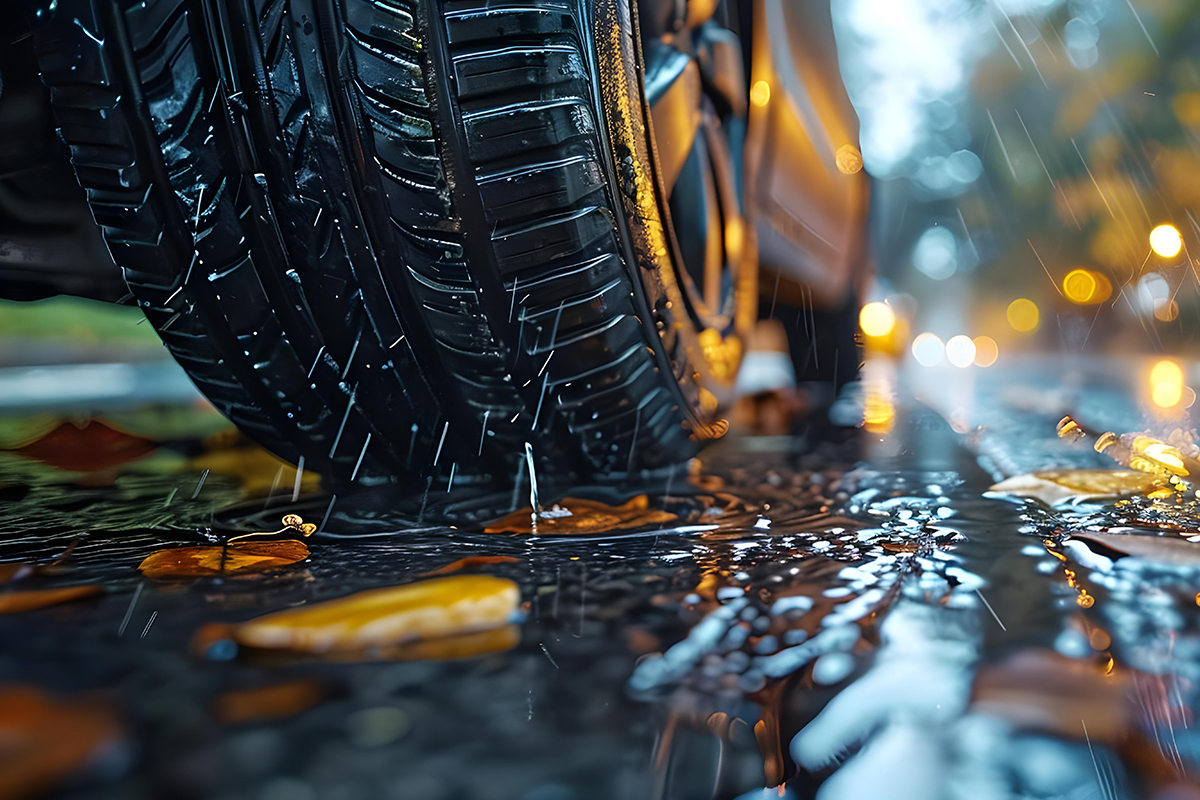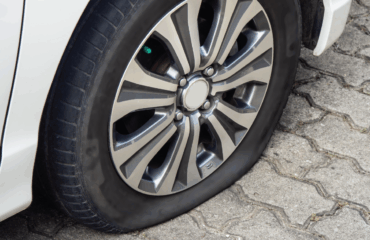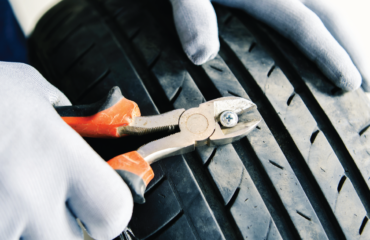The recent flash floods and heavy rain in Dubai have significantly impacted vehicles, with tires particularly vulnerable to the risks associated with floodwaters. Understanding how floodwaters and heavy rain affect tires and taking preventive measures can help avoid damage and ensure safer driving conditions.
Impact of Floodwater & Heavy Rain on Car & SUV Tires
Floodwaters can carry a variety of contaminants and debris that can damage tires in several ways. Here’s how floodwaters & heavy rain can impact you Car & SUV tires:
- Hydroplaning Risk: When roads are submerged, tires can lose traction due to hydroplaning, a phenomenon where a thin layer of water forms between the tires and the road surface. This causes a loss of contact, leading to a significant reduction in control and stability. Infact, heavy flood waters can cause upward buoyancy force which can technically float the vehicle.
- Punctures and Damage: Floodwaters often carry sharp debris like broken glass, nails, metal fragments, and tree branches etc. Driving through these hazardous materials can puncture tire treads, cut side walls leading to flat tires or slow air leaks. Even if punctures do not occur, the constant abrasion from the debris can weaken tire structure, reducing its lifespan.
- Contamination and Corrosion: Floodwaters often contain chemicals, oils, and other pollutants that can degrade rubber. Prolonged exposure to these substances can lead to corrosion, weakening tire integrity. This damage might not be immediately visible, but over a period of time, can lead to cracks and brittleness.
- Traction and Road Contact: Floodwaters can carry mud and silt, clogging tire treads, affecting their ability to grip the road.
Protecting Your Tires During Heavy Rain & Flash Floods
Here are some measures you can take to protect your tires from the adverse effects of floodwaters & heavy rainfall:
- Inspect and Clean Tires: After driving through floodwaters, inspect your tires for signs of damage, such as cuts, punctures, or excessive wear. Clean tires to remove mud and debris, which can hinder traction and cause accelerated wear.
- Maintain Proper Inflation: Proper tire inflation is essential for maintaining traction and reducing the risk of hydroplaning. Regularly check your tire pressure, especially if you’ve driven through floodwaters.
- Drive Slowly and Avoid Flooded Areas: Reduce speed when driving through flooded areas to minimise the risk of punctures and hydroplaning. Avoid roads that are heavily flooded, as the depth and debris content can be unpredictable.
- Use High-Quality Tires: Invest in high-quality tires such as Nexen, Bridgestone, Michelin, Pirelli, Continental with good tread pattern featuring wet-gripping, prevents aqua plaining and durability. This will reduce the risk of damage from floodwaters and provide better traction on wet surfaces.
By understanding the potential impacts of floodwaters on tires and taking preventive measures, you can reduce the risks associated with flash floods and heavy rains ensuring a safer driving experience in Dubai.
Saeedi Pro – The Best Service Center to Buy High Quality Tires
Saeedi Pro stands out as the best tyres shop with multiple brands for tire and puncture repair, offering unmatched expertise, quality service, and a comprehensive range of solutions for all your tire needs. With a team of skilled technicians and state-of-the-art service centers equipped with the best tire brands, Saeedi Pro provides prompt and reliable services, ensuring your vehicle is safe and road-ready. Experience peace of mind and keep your tires in top condition by choosing Saeedi Pro—the trusted partner for all tire solutions in Dubai.
Call 800 72 3334 (24×7) Or WhatsApp us and our professional service advisors will be happy to assist you.








